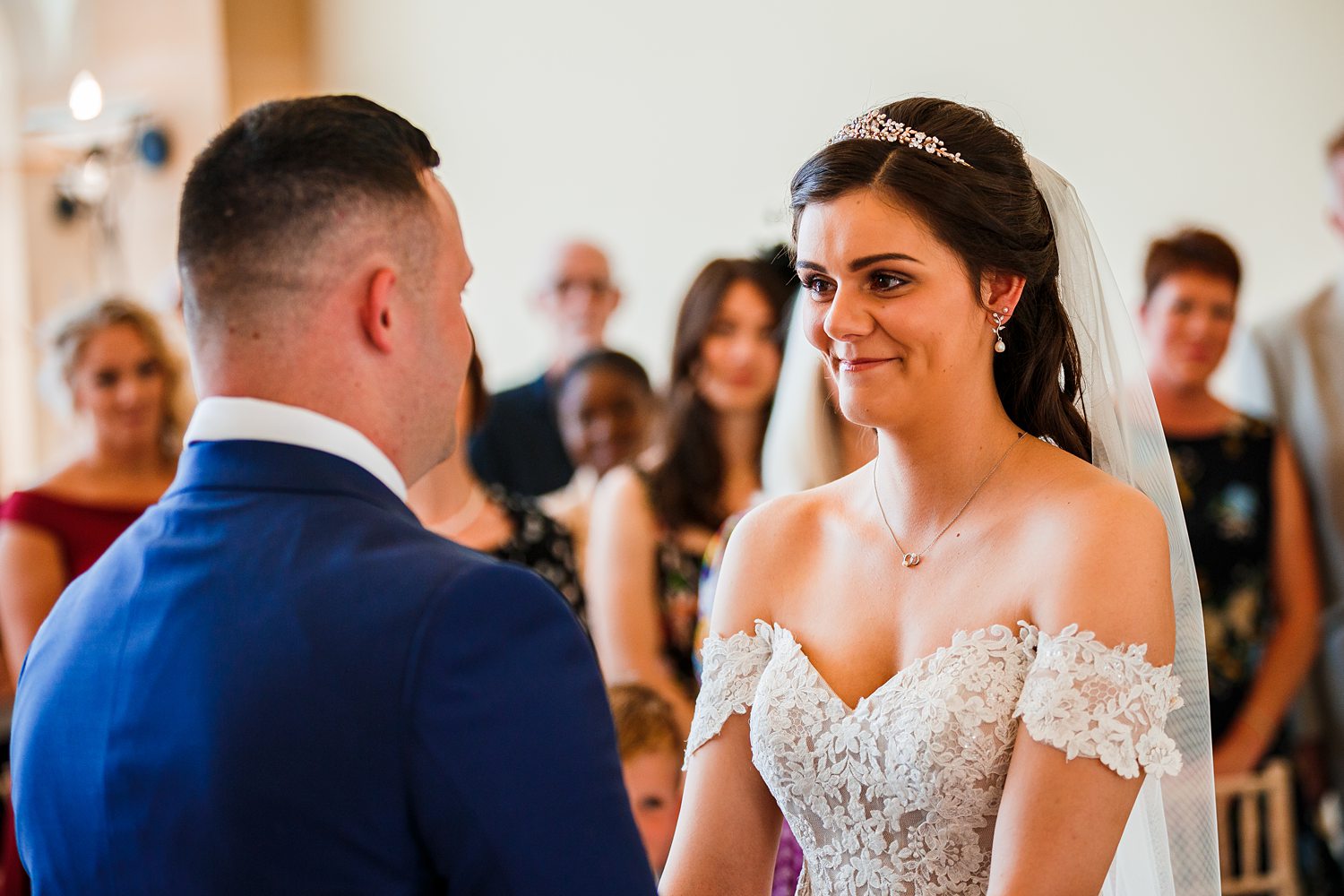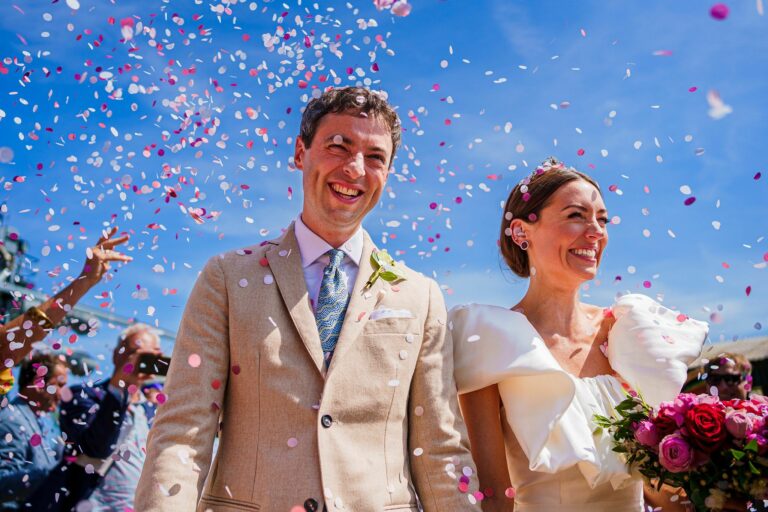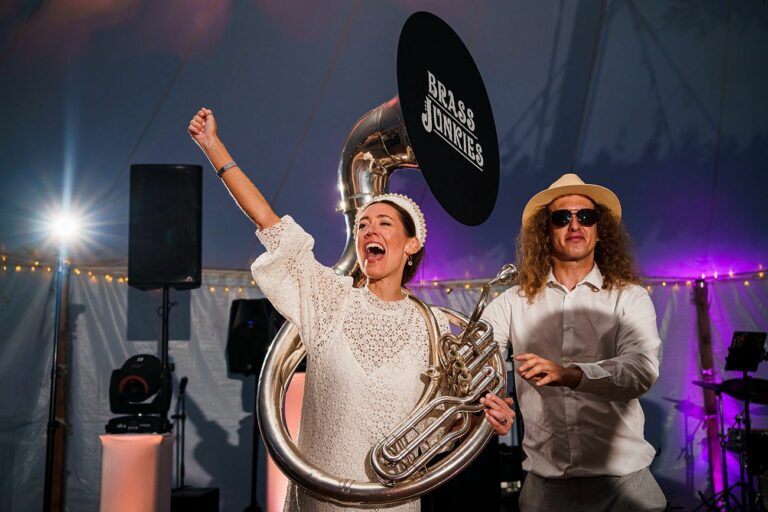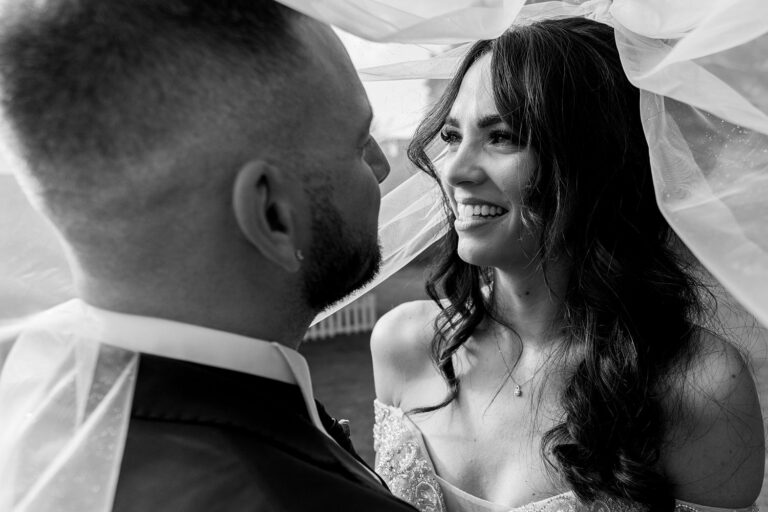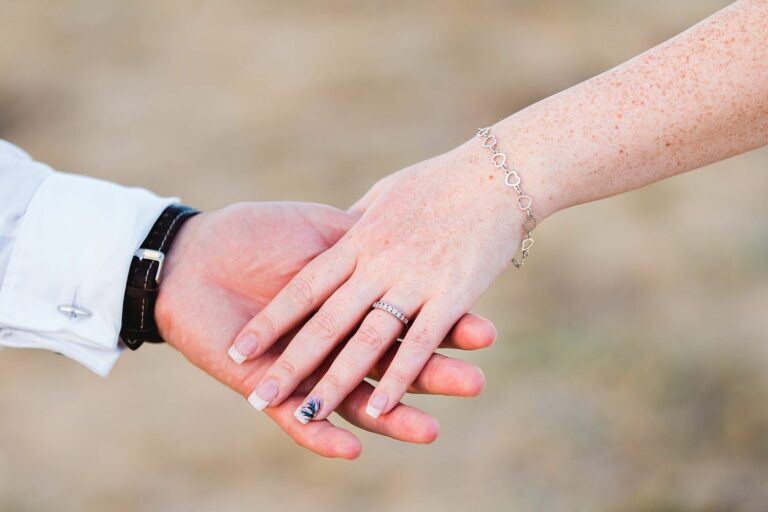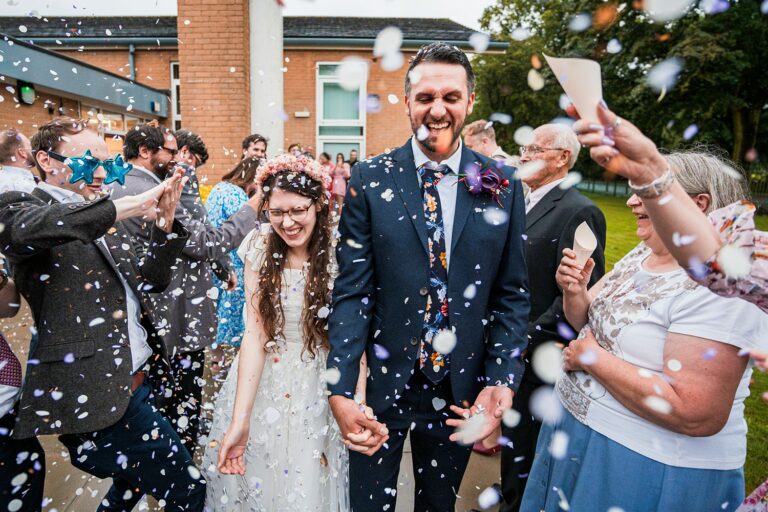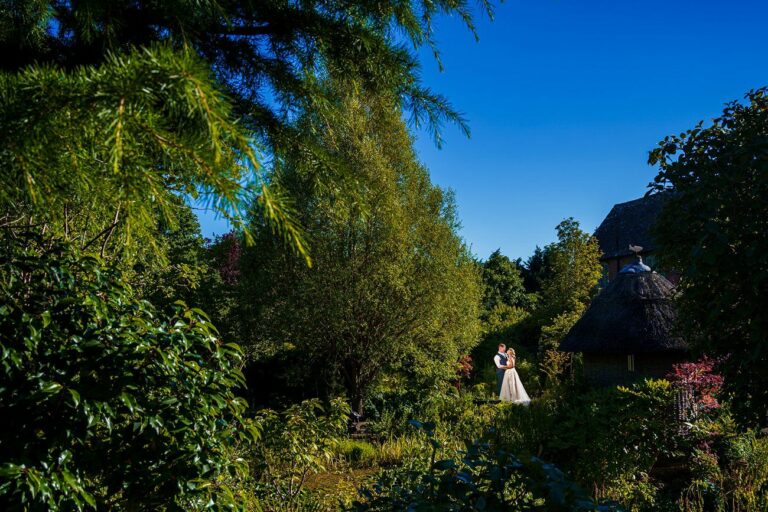Wedding Ceremony Times: What is The Best Time To Get Married On Your Wedding Day?
Plan a Stress-Free Wedding Day, and Choose The Best Time To Get Married
Choosing the right time for your wedding ceremony is crucial for a smooth and stress-free day. The best time will depend on various factors, including the season, sunset time, and the flow of your wedding day. By considering these factors, you can create a wedding day timeline that works perfectly for you and your guests. Let’s explore the optimal times for different seasons and how to plan your wedding day timeline accordingly.
Key Takeaways:
- Choosing the right wedding ceremony time is essential for a smooth and stress-free day.
- The best time will depend on factors such as the season and sunset time.
- Spring and Autumn weddings benefit from a ceremony start time around 2 pm.
- Summer weddings can have a later ceremony start time, around 3 pm.
- For Winter weddings, starting the ceremony around 1 pm or 2 pm is ideal.
Spring/Autumn Wedding Ceremony Times
In the spring and Autumn seasons, the sunset time plays a significant role in determining the ideal ceremony start time. The sunset is around 6:00 pm at the beginning of March and gradually shifts to around 5:30 pm in November. To ensure ample time for outdoor photos and portraits, a ceremony start time of around 2 pm is recommended.
This allows for a sample timeline of events:
- The ceremony
- Family formals
- Bridal party photos
- Wedding Portraits of the newlyweds
- Entrance into the reception
By starting the ceremony earlier in the afternoon, you can capture beautiful photos in the natural daylight and have enough time to enjoy the rest of your special day.
Summer Wedding Ceremony Times
Planning a summer wedding ceremony? Take advantage of the long daylight hours and consider a later start time for your special day. One of the popular choices is to schedule your ceremony at 3 pm, allowing you to make the most of the beautiful summer weather and capture stunning photos.
By opting for a 3 pm ceremony, you can start your morning with hair and makeup preparations, ensuring you look your best for the big day. This timing allows enough time for all the pre-ceremony activities, including getting dressed and taking pre-ceremony photos. By the time the ceremony commences, you’ll be ready to say “I do” without feeling rushed.
Choosing the 3 pm slot also ensures that you have plenty of time for family formals and bridal portraits after the ceremony. These photos are essential for creating cherished memories, and having them done before your wedding breakfast means that you and your guests can fully enjoy the reception without any unnecessary waiting time.
With the later ceremony start time, your guests can relax and mingle during cocktail hour while you and your partner take stunning sunset photos or begin your grand entrance. The 3 pm timing strikes the perfect balance between capturing beautiful moments and allowing for an unforgettable reception.
Winter Wedding Ceremony Times
Winter weddings can create a magical atmosphere, but planning around the early sunset can be a challenge. To make the most of your special day, it’s important to consider the timing of your ceremony. For couples who prefer a later ceremony without a first look, starting hair and makeup preparations early is highly recommended. This allows you to take advantage of the remaining daylight hours for stunning outdoor photos before the sun sets. Aim for a ceremony start time of either 1 pm or 2 pm to ensure ample time for family formals, bridal party photos, couple portraits, and a seamless entrance into the reception.
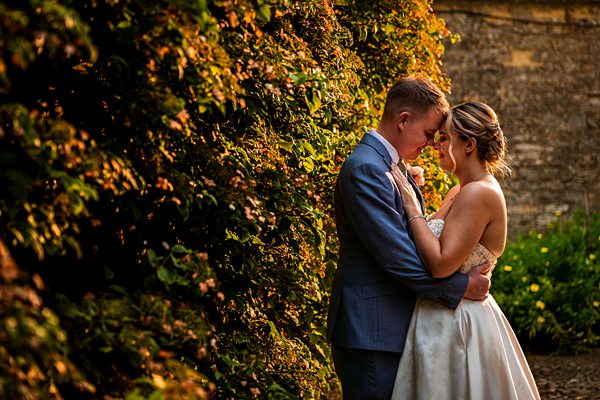
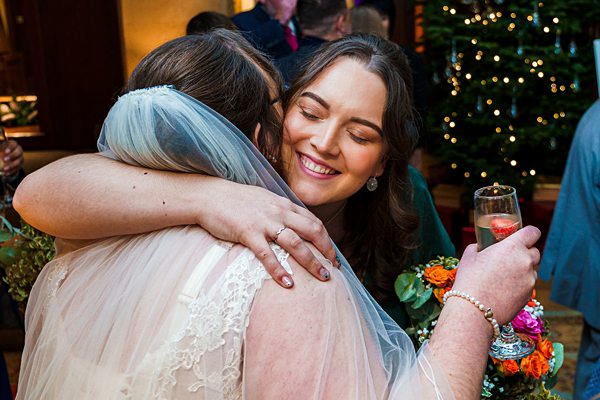
Wedding Planning, Creating Your Wedding Day Timeline
Planning your wedding day timeline is an important part of ensuring a smooth and memorable day. Taking the time to carefully consider all the events and activities throughout the day will help you create a schedule that works best for you and your guests. Start by identifying a fixed point, such as the ceremony start time, and build your timeline from there.
Consider allocating specific time slots for each key element of your wedding day, including getting ready, photography sessions, drinks reception, the wedding breakfast, speeches, and the first dance. By giving each activity its dedicated time, you can ensure that everything runs smoothly and that you have enough time to fully enjoy each moment. Many wedding venues provide the services of wedding planners who offer guidance on the optimal course of action and inform you about the best time of day to get married, ensuring a seamless wedding day. These professionals are well-versed in the details, including the best times for your wedding ceremony and reception, and the timing of each plays a significant role in the overall feel of your special day.
It’s also important to plan for unforeseen delays or unexpected circumstances. Including some contingency time in your schedule will allow you to handle any last-minute changes with ease. This buffer time can help alleviate stress and ensure that your wedding day flows seamlessly.
Remember, your wedding day timeline should reflect your personal preferences and priorities. Be flexible and adaptable, and don’t be afraid to make adjustments as needed. Your wedding planner can also provide valuable guidance and help you create a well-structured and realistic timeline that suits your needs.
Key Considerations for Your Wedding Day Timeline:
- Getting Ready: Allocate enough time for hair, makeup, and getting dressed. Consider the number of people involved and their individual needs to ensure a relaxed and enjoyable morning.
- Photography Sessions: Plan for dedicated time for pre-ceremony, ceremony, and post-ceremony photos. Discuss the specific shots and locations with your photographer in advance to make the most of this important part of your wedding day.
- Drinks Reception: Allow time for your guests to mingle, enjoy drinks and appetizers, and get settled before the wedding breakfast. This is an opportunity for everyone to relax and socialize before the main event.
- The Wedding Breakfast: Plan for ample time to enjoy your meal, socialize with guests, and celebrate your union. Consider the number of speeches, performances, or special moments you want to include in the reception schedule.
- Speeches: Allocate time for speeches and toasts from family and friends. Ensure that everyone involved has a clear understanding of their speaking time to keep the schedule on track.
- The First Dance: Allow sufficient time for your first dance as a married couple. This is a cherished moment that deserves its own spot in your timeline.
By carefully planning and organizing your wedding day timeline, you can create a schedule that reflects your vision and ensures a memorable experience for you and your loved ones. Don’t forget to communicate the timeline with your wedding party and vendors, so everyone is on the same page and can contribute to a seamless and joyful celebration.
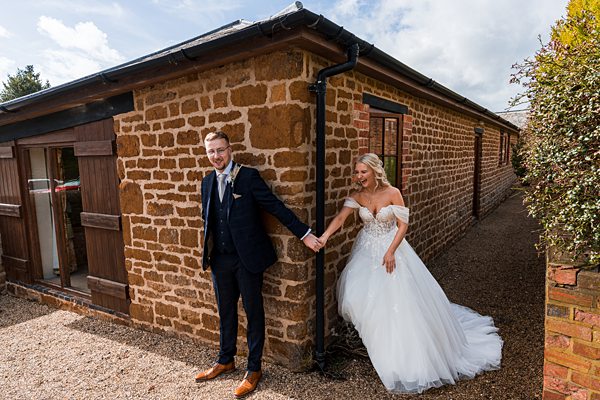
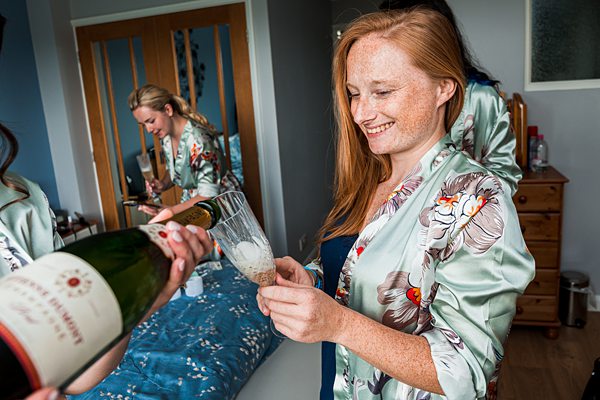
Tips for a Smooth Wedding Day
To ensure a stress-free wedding day, follow these key tips for a seamless celebration:
- Communicate with your wedding planner, photographer, and other vendors. Make sure everyone is on the same page and understands your expectations. It’s essential to coordinate schedules and ensure smooth coordination throughout the day.
- Consider doing a first look. By having a private moment with your partner or family before the ceremony, you can enjoy more time for photos and create a relaxed morning atmosphere. This allows you to capture beautiful moments without rushing.
- Plan for the end of the night. Make arrangements for transportation to ensure you and your guests can leave the venue smoothly. Don’t forget to say goodbye and express your gratitude to everyone who attended your special day.
“Communication is key when it comes to planning a stress-free wedding day. By keeping everyone informed and working together, you can make sure everything runs smoothly.”
By following these tips, you can enjoy your day, and focus on making unforgettable memories with your loved ones.
Conclusion
Choosing the best time for your wedding ceremony is crucial for creating the perfect schedule and ensuring a smooth and enjoyable day. By considering the season, sunset time, and planning your wedding day timeline accordingly, you can have the ideal wedding day experience.
Remember to communicate with your vendors to align everyone’s expectations and coordinate schedules. This will help avoid any delays or last-minute surprises. Including contingency time in your schedule is also important, as it allows for flexibility if any unforeseen circumstances arise.
Ultimately, your wedding ceremony is a special and joyous occasion. With careful planning and attention to detail, you can create the perfect wedding day timeline that allows you to savor every moment without feeling rushed or overwhelmed. The ideal wedding ceremony time will ensure a memorable celebration that you and your guests will cherish for years to come.
FAQ
What time is the best for a wedding ceremony?
The best time for a wedding ceremony depends on various factors such as the season, sunset time, and the flow of your wedding day. It is essential to consider these factors when choosing a time that works perfectly for you and your guests.
What is the recommended ceremony start time for a Spring or Autumn wedding?
For spring or Autumn weddings, a ceremony start time of around 2 pm is recommended. This allows for ample time for outdoor photos and portraits before the sun sets.
What is the ideal ceremony start time for a Summer wedding?
A popular choice for a summer wedding is to have the ceremony at 3 pm. This gives enough time for hair and makeup preparations in the morning and allows for all the photos to be done before dinner.
What is the recommended ceremony start time for a winter wedding?
For a winter wedding without a first look, it is recommended to start hair and makeup preparations early and have a ceremony start time of 1 pm or 2 pm. This allows for plenty of time for outdoor photos before the early sunset.
How should I create my wedding day timeline?
Start by identifying a fixed point, such as the ceremony start time, and build your timeline from there. Consider allocating time for getting ready, photography sessions, cocktail hour, wedding breakfast, speeches, and the first dance. It’s important to plan for unforeseen delays and include some contingency time.
What are some tips for a smooth wedding day?
To ensure a stress-free wedding day, communicate with your wedding planner, photographer, and other vendors to align expectations and coordinate schedules. Consider doing a first look to allow for more time for photos and a relaxed morning. Also, make sure to plan for the end of the night, including transportation and bidding farewell to your guests.
What are the advantages of choosing the right ceremony time?
Choosing the right ceremony time ensures a smooth and enjoyable day for you and your guests. It allows for a well-planned wedding day timeline, ample time for photos and portraits, and a stress-free experience.
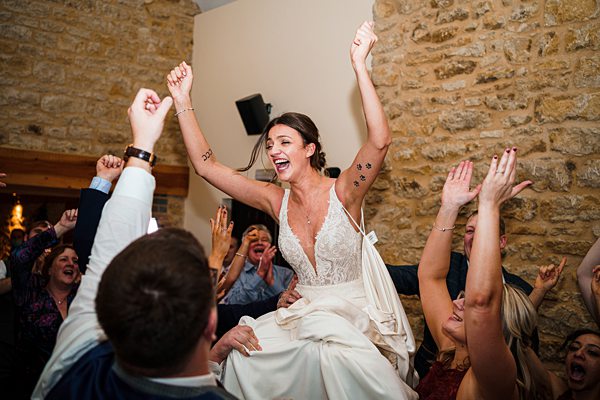
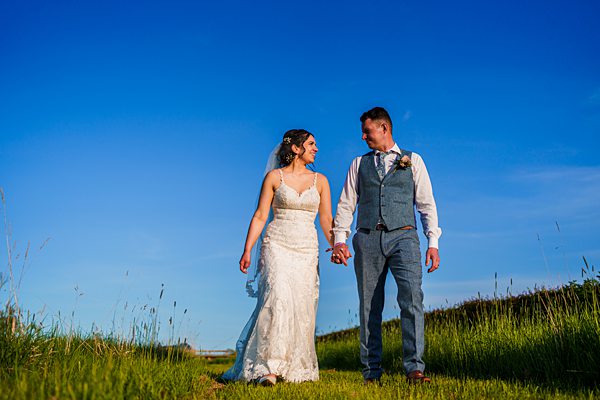
Planning your wedding day and wish to talk?
I’m eager to learn about your wedding preparations! Feel free to reach out and contact me anytime if you’d like to discuss all things related to weddings. Additionally, check out my portfolio and explore various wedding photography prices and packages that I offer.

